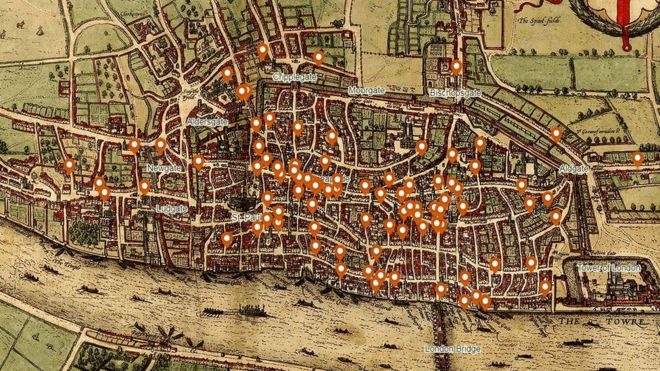So here we are for our last post of 2018, and this month’s links to items you may have missed before. As usual we’ll start with the scientific and get easier as we go along – so hang in there!
Science, Technology & Natural World
Forty-one years ago (that’s 1977) NASA launched the Voyager 1 and Voyager 2 probes to investigate the outer planets. Voyager 1 left the solar system and entered interstellar space some six years ago. And it has now been confirmed that Voyager 2 passed the same landmark on 5 November 2018. Amazingly both probes are still alive and beaming information back to us using their tiny 20w transmitters, although their plutonium power sources will eventually run out and the probes will be dead on arrival at a nearby star in about 40,000 years time. What an incredible achievement! It is feats like this that make me proud to be a scientist.

We know earthquakes mostly happen along the boundaries of tectonic plates. But not all do; some happen far from plate boundaries. Seismologists are now beginning to think that (some of) these “remote” earthquakes may be caused by rivers moving huge amounts of material over the millennia.
Benjamin Franklin is well known for many things, one of them being his experiments with kites and lightning which led to his development of the lightning conductor. But he had another great electrical discovery to his credit: turkey tenderisation – in the process of which he nearly killed himself.
I wonder if anyone can tell us what glitter is, and how it’s made?
Apparently the Leaning Tower of Pisa is leaning a little less.
Wasps. And why we might miss them.
Where grows the mistletoe?
Health & Medicine
1918 saw the destructive Influenza Pandemic. What progress has been made since then?
Meanwhile we have few clues about Disease X, the next pandemic to hit London – as one surely will sooner or later.
Researchers reckon they’ve discovered a genetic cause that links erectile dysfunction and Type-2 diabetes.
Are you shitting comfortably? Actually, probably not. [LONG READ]
So why are more boys born than girls – especially when there are more adult women than men?
Sexuality
The Going Medieval blog dissects the very idea of No Nut November. [LONG READ]
Environment
The Guardian suggests 24 ways in which we can embrace an anti-capitalist life in a capitalist world.
And then here are four actions would help tackle the global plastic crisis.
History, Archaeology & Anthropology
Researchers reckon they’ve found stone tools which suggest that human ancestors spread into north Africa much earlier than previously thought.
Analysis of various records has highlighted London’s murder hotspots.

Meanwhile in the River Thames there is the mystery of the skeleton still wearing his thigh boots.
When and where were the first traffic lights? Answer: Parliament Square in 1868 – long before the motor car.
Lifestyle & Personal Development
Some thoughts on how to be a better spouse from Scientific American.
And finally for this year …
Since 1904, King William’s College on the Isle of Man has set an annual general knowledge test. In the past pupils sat the test twice: once unseen on the day before the Christmas holidays, and again when they returned to school in the New Year, after spending the holiday researching the answers. The test (now voluntary) is highly difficult, a common score being just two correct answers from the 180 questions, with best scores of 40 to 50 for the unseen test. The quiz has been published in the Guardian since 1951 – and you can find the 2018 test in the Guardian or on the King William’s College website. Good luck!
That’s all for this year, so here’s wishing everyone a peaceful and successful 2019. The Kindly Ones permitting we’ll be back after the fireworks.
